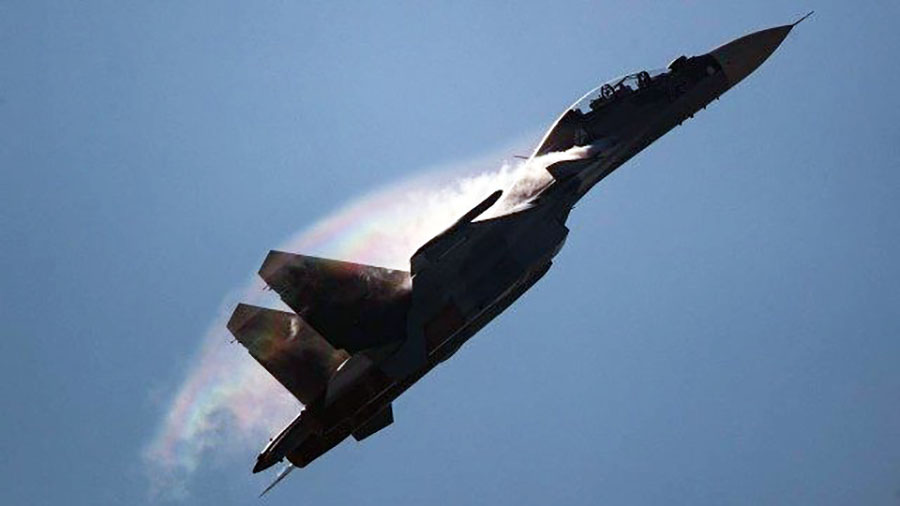
Algeria paves its Su-57 future by donating MiG-29s to Sudan
Source: bulgarianmilitary
The Arab outlet Defense Arabic recently reported that Russian MiG-29s, currently operated by the Algerian Air Force, might soon bolster the Sudanese Air Force. This potential transfer aligns with Algeria’s plans to modernize its own fleet, which includes the anticipated delivery of Su-57 jets and the existing 70 Su-30 fighters.
“The African defense landscape is poised for significant changes, suggesting the Algerian Ministry of Defense may soon provide surplus Russian-imported MiG-29 fighter jets to the Sudanese Air Force,” the Arabic resource noted. “Interestingly, these MiG-29s are a cornerstone of Algeria’s current combat aircraft capabilities. The Algerian Air Force is reportedly gearing up for further modernization with plans to acquire fifth-generation Su-57 fighter jets from Russia later this decade.”
While this development isn’t entirely new, recent discussions between Algerian and Sudanese sources have reignited talks about the potential deal over the past 72 hours. This news, though still unofficial, follows a turbulent half-decade in Sudan, marked by a 2019 coup that ousted President Omar al-Bashir.
The following years witnessed the fragmentation of Sudan’s military and a notable rise in external influences, especially from Europe. This ultimately sparked an internal conflict between the national armed forces and the Janjaweed militia, now operating as the Rapid Reaction Force.
In 1999, the Algerian Ministry of Defense requested the purchase of 31 MiG-29 fighters. The delivery took place the next year under a three-way contract with Russia and Belarus. Initially, this fighter class was expected to play a much larger role in the Algerian Air Force. However, this vision changed in 2006 when the purchase of the more advanced MiG-29SMT fighters was terminated, leading to the return of these aircraft to Russia.
The Algerian Air Force now strongly favors the Su-30MKA heavy fighter. Despite its higher cost, this aircraft offers greater capabilities. Comparisons reveal that the Su-30MKA, currently the Algerian Air Force’s primary fighter with about 72 units in service, significantly outperforms the smaller MiG-29.
Rumors of Algeria potentially donating these surplus MiG-29 fighter jets suggest a strategic move to bolster relationships between the two countries. Previously, Algeria has shown a willingness to provide military assistance to the region, underscoring its growing role in Africa.
Regarding the Su-57, Algeria has been in negotiations with Russia to procure this fifth-generation fighter since the early 2020s. This acquisition is part of Algeria’s broader, long-term plan to modernize its air force, which has already benefited from the purchase of advanced MiG-29M and Su-30MKA models, vastly superior to their older counterparts.
Military experts like Alexander Goltz highlight that the Su-57 will provide Algeria with significant advantages in air operations, bolstering its status as a predominant force in North Africa. This shift may alarm neighboring countries like Morocco and Tunisia, potentially prompting them to enhance their own military resources in response.
For Sudan, the acquisition of the MiG-29 enhances the national armed forces’ ability to maintain airspace control, particularly amidst internal conflicts and rebel threats. While the MiG-29 is an older model compared to contemporary fighters like the Su-57, it remains a potent asset for securing air superiority.
This could bolster the government’s stance against internal opposition forces such as the Rapid Reaction Force. Political scientist Muhammad Khalid noted that foreign support for Sudan, particularly from nations like Algeria, might result in a heightened dependence on external partners in defense matters.
Geopolitically, the Algeria-Sudan partnership, backed by Iran, might forge new spheres of influence in the region. This could spark reactions from traditional Western allies and nations like Saudi Arabia and the UAE, which have vested interests in Sudan. Political scientist Hani Nasr suggested that such military alliances could establish new regional blocs and complicate Western diplomatic efforts.
Meanwhile, Sudanese society might respond differently, with some factions welcoming the external aid while others worry about increasing reliance on foreign powers and the potential strengthening of military rule.
The economic ramifications of these deals are significant for both Algeria and Sudan. For Algeria, procuring the Su-57 is a substantial investment. Despite having abundant natural resources like oil and natural gas, funding such a deal could strain the national budget, especially considering the need for maintenance, training, and infrastructure.
Military analysts estimate the cost of one Su-57 at over 100 million, and Algeria plans to acquire up to 14 units. These substantial expenses could have long-term economic impacts, potentially forcing budget cuts in other areas to fund military projects.
In Sudan, the economic implications are multifaceted. Even though Algeria’s MiG-29s are donated, maintaining and modernizing these relatively outdated aircraft will require funds. These costs could further strain Sudan’s economy, already burdened by ongoing internal conflicts and political instability.
Moreover, maintaining such military systems requires technical expertise and infrastructure, which may need development. This type of spending could divert resources from essential sectors like health and education, potentially fueling social discontent.

